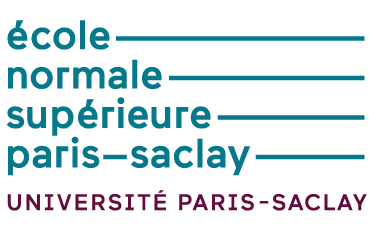Machine Learning for Time Series (Master MVA)
Teaching material and outline of the course Machine Learning for Time Series (Master MVA) during 2025-2026.
Course description
In many application contexts (health, economy, advertising...), the data collected takes the form of time series. The fundamental challenge then consists in choosing an adapted representation, allowing to take into account the temporal information as well as possible.
Machine Learning for time series gathers a large number of unsupervised or supervised tasks such as prediction, classification, completion/interpolation, query by content/indexation, clustering, segmentation/change-point detection or anomaly detection. But in reality, most of work for a data scientist dealing with temporal data consists in a series of hidden tasks such as:
- Understand the data: know where they come from, how they were acquired, what are their characteristics, interact with domain-experts and understand their problems
- Improve the data: find accurate representation spaces where the events of interest can be seen, consolidate the data (denoising, detrending, detection/removal of outliers)
- Model the data: physical/statistical or expert-based models, simple, adaptive and interpretable models
- Extract information from the data: find repetitive patterns, features of interest, change-points
This course aims to provide an overview of ML techniques to study time series, in different tasks such as pattern extraction and recognition, anomaly detection, prediction, interpolation etc. The course will mostly focus on these often poorly-documented hidden tasks and introduce several recent ML methods that will help the future data scientist to mine, but above all to understand time series. The course will be widely illustrated on real data and problems from current challenges and will emphasize aspects related to data understanding and interpretation. Note that in its current form, the course will only marginally discuss Deep Learning algorithms.
Outline and planning
Lectures will take place on Monday mornings at Université Paris Cité. Lectures will be on-site and will NOT be filmed or recorded. Lectures will be in French but all material (slides, homeworks...) is in English. For the tutorial sessions two options will be available: Monday mornings will be onsite and Monday afternoons will be on Zoom (except for Tutorial 3). Attendance at lectures and tutorials is mandatory and will be assessed using attendance lists. Any unjustified absence will automatically result in the course not being validated. Tutorial sessions will be led by Valerio Guerrini
06/10/2025
09:00 → 12:00
Site Cordeliers - Amphi Frezal |
Introduction
|

|
Lecture 1: Pattern Recognition and Detection
- Problem statement
- Comparing time series
- Euclidean distance
- Normalized Euclidean distance
- Dynamic Time Warping (DTW)
- Detecting patterns in time series
- Euclidean distance
- DTW
- Learning patterns from time series
- Distance-based pattern extraction
- Dictionary-based pattern extraction
| 
|
13/10/2025
09:00 → 12:00
Site Cordeliers - Amphi Frezal |
Lecture 2: Feature Extraction and Selection
- Problem statement
- Feature extraction
- Stationarity and ergodicity
- Statistical features
- Spectral features
- Local symbolic features
- Information theory features
- Deep Learning features
- Other features
- Feature selection
- Unsupervised setting
- Supervised setting
| 
|
27/10/2025
09:00 → 12:00 Site Cordeliers - Amphi Frezal
OR
27/10/2025
14:00 → 17:00
Zoom
|
Tutorial 1 on Lectures 1 & 2
| 
|
03/11/2025
09:00 → 12:00
Site Cordeliers - Amphi Frezal |
Lecture 3: Models and Representation Learning
- Problem statement
- Standard models
- Sinusoidal model
- Trend+Seasonality model
- AR models (and variants)
- Hidden Markov model
- Representation learning
- Standard representations
- Notion of sparsity
- Sparse coding
- Dictionary learning
| 
|
10/11/2025
09:00 → 12:00
Site Cordeliers - Amphi Frezal |
Lecture 4: Data Enhancement and Preprocessings
- Problem statement
- Denoising
- Filtering
- Sparse approximations
- Low-rank approximations
- Other techniques
- Detrending
- Least-Square regression
- Other techniques
- Interpolation of missing samples
- Polynomial interpolation
- Low-rank interpolation
- Model-based interpolation
- Outlier removal
- Isolated samples
- Contiguous samples
| 
|
17/11/2025
09:00 → 12:00
Site Cochin - Amphi Luton |
Lecture 5: Change-Point and Anomaly Detection
- Problem statement
- Change point detection
- Dealing with non-stationary time series
- Problem statement
- Cost functions
- Search methods
- Finding the number of change points
- Anomaly detection
- Outlier detection
- Statistical methods
- Model-based methods
- Distance-based methods
- Evaluation of event detection methods
| 
|
24/11/2025
09:00 → 12:00 Site Cordeliers - Amphi Frezal
OR
24/11/2025
14:00 → 17:00
Zoom
|
Tutorial 2 on Lectures 3 & 4
| 
|
01/12/2025
09:00 → 12:00
Site Cochin - Amphi Luton |
Lecture 6: Multivariate Time Series
- Problem statement
- Models for multivariate time series
- Vector autoregressive models
- Multivariate dictionary learning
- Graph signal processing
- Concepts and definitions
- Graph Fourier Transform (GFT)
- Bandlimitedness and smoothness
- Graph filtering
- Graph learning
| 
|
08/12/2025
09:00 → 12:00 Zoom
OR
08/12/2025
14:00 → 17:00
Site Cordeliers - Amphi Frezal
|
Tutorial 3 on Lectures 5 & 6
| 
|
15/12/2025 (all day)
17/12/2025 (all day)
05/01/2026 (all day)
07/01/2026 (all day)
Zoom |
Oral presentations
|
|
Registration and mailing list
A link to a registration form will be provided during the first lecture on October 6th 2025 to subscribe to the course mailing-list and register to the class. The final registration date is set to October 12th 2025: no registration will be allowed after this date and the link will not be sent by email.
Tutorials
Tutorials will consist in interactive sessions where the students will be introduced to useful Python packages for time series analysis and have the opportunity to use and apply the different algorithms studied during the lectures. After each tutorial, students will be asked to work in pairs on a small project that will consist in (almost) direct applications of the algorithms seen in the tutorial sessions. Students are required to bring their own personal computer during the tutorial sessions: details on installation and required configuration will be provided before the first tutorial session. Attendance at at least one of the two tutorials sessions (on-site or remote) is mandatory: absences must be justified, otherwise you will receive a FAIL. Missed or late assignments will also give you a FAIL in the course.
Validation
- Tutorials (25%): commented notebooks and/or PDF reports
- Mini-project (75%): Choice of one paper on a topic related to the course. A list of possible topics/projects will be provided, but students can bring their own topics. In this case, they must contact the lecturer in advance for approval. Mini-projects will be done in pairs.
- Report (25%): PDF file, 5 pages - a template will be provided
- Source code (25%): commented Jupyter notebook
- Oral presentation (25%): 10 min presentation with slides
Due to the large number of students, auditeurs libres will not be able to attend the course
Additional ressources
Useful references
|

|
|
List of possible topics/projects
|

|



